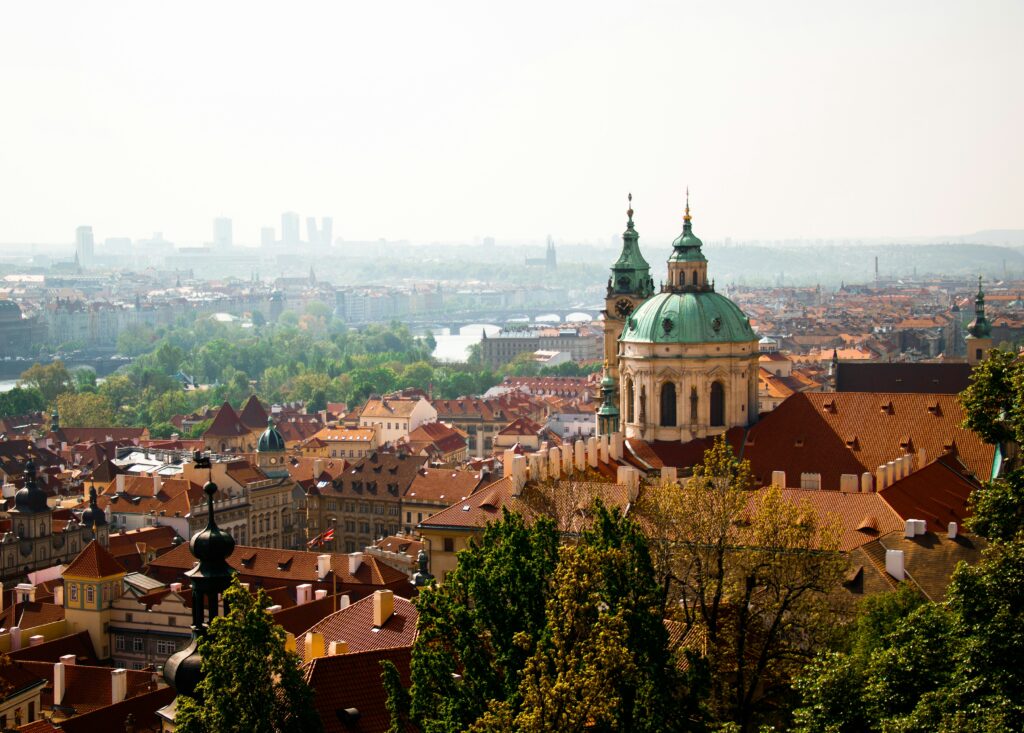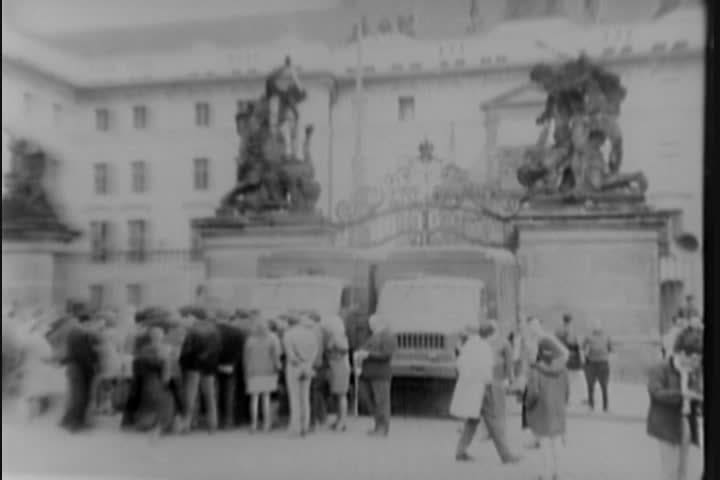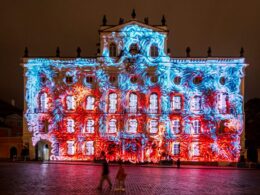Table of contents Show
The Prague 68 invasion, a terrible episode in Czechoslovakia’s history, occurred at the height of the Cold War, escalating the conflicts between the Eastern Bloc and the Western world. Let us look back in time to better understand the events and consequences of the Prague 68 invasion.
This invasion, supported by the Soviet Union and its Warsaw Pact partners, brought a sudden halt to the Prague Spring, an era of political liberalization and change that had raised aspirations for a more free and democratic society.
The 1968 Czech uprising amid foreign intrusion paved the way for future independence and self-determination efforts. In the end, the invasion served as a spark for the country’s final victory in its pursuit of democracy.
Main Events of Czechoslovakia in 1968

1968 was a turbulent year in Czechoslovakia, highlighted by key political and social developments. Here are a few of the major 1968 events that affected the path of Czechoslovak history during that year.
January 5 – April 1, 1968: Prague Spring begins
Alexander Dubček, the First Secretary of the Communist Party of Czechoslovakia, initiated the 1968 Prague Spring by implementing liberalizing reforms.
Political Liberalization: The reforms seek to build “socialism with a human face,” stressing political plurality, freedom of expression, and economic transformation.
On April 8, 1968: Ludvík Vaculík Manifesto
Ludvík Vaculík, a Czech writer and journalist, published the “Two Thousand Words” manifesto, expressing worries about the political reform process and advocating for more democracy.
July 29–August 3, 1968: Invasion of Czechoslovakia
Operation Danube: Soviet-led Warsaw Pact soldiers invade Czechoslovakia in reaction to the perceived danger of liberalization. Soldiers from the Soviet Union, Poland, East Germany, Hungary, and Bulgaria have taken part in the invasion.
Occupation of Cities: Prague and other significant towns are occupied, with the reform movement crushed.
August 21, 1968: Alexander Dubček addresses the nation
Despite the incursion, Dubček encourages passive resistance and avoids armed engagement with the invaders. His address becomes an emblem of nonviolent resistance.
August 26, 1968: Dubček was removed from office
In a Moscow conference, Dubček is persuaded to accept the Moscow Protocol, which effectively ends the Prague Spring. He was then ousted from office and succeeded by Gustáv Husák.
November 1, 1968: Husák Takes Over as General Secretary
Conservative Leadership: Gustáv Husák, noted for his conservative position, takes over as General Secretary of the Communist Party of Czechoslovakia, signaling a departure from the Prague Spring changes.
November 17, 1968: Student protests
Anniversary Protest: On the first anniversary of the murder of Jan Opletal, a student slain during a Nazi invasion protest, students plan peaceful rallies in Prague, which result in skirmishes with police.
Jan Palach died on December 27, 1968
Protest through Self-Immolation: Jan Palach, a student, sets himself on fire in Prague’s Wenceslas Square in protest of apathy and censorship following the invasion. He died from his injuries on January 19, 1969.
Examining the Leadership and the Czech Spring Movement in 1968
During the Prague Spring, Alexander Dubček, the Czech leader in 1968, led the movement towards a more open and democratic Czechoslovakia. After becoming the First Secretary of the Communist Party of Czechoslovakia in January 1968, Dubček became associated with the era’s reforming attitude.
Dubček’s leadership style emphasized pragmatism and humanizing socialism. He called his approach “socialism with a human face,” reconciling socialist ideas with individual liberty and democratic aspirations. He led Czechoslovakia to political plurality, economic decentralized governance, and cultural rebirth.
Key Tenets of the Prague Spring Movement: This movement included political, economic, and cultural reforms.
Political plurality: This was a cornerstone of the Prague Spring. Dubček intended to break the Communist Party’s monolithic dominance by permitting different political parties and promoting diverse views.
Freedom of Expression: The movement attempted to liberate ideas through free speech. The relaxation of censorship sparked creativity in literature, the arts, and media.
Economic Reforms: Dubček’s leadership sought economic modernization. The Prague Spring advocated market socialism, giving businesses more freedom and decentralizing the economy.
Recalling the Events: Czechoslovakia in 1968 and the Prague Spring
Czechoslovakia’s 1968 amazing transition to liberalization and democratic socialism occurred during the Cold War. As the Soviet Union suppressed the Prague Spring, this hope was dashed. Remember the intriguing events of this turbulent period in Czechoslovakian history with us.
Seeds of Dissent
During the Cold War, Alexander Dubček led Czechoslovakia to break away from the Soviet Union’s authoritarian control.
Springing into Action
Czechoslovakia residents engaged in public debates and publicly criticized the status quo as change swept the country.
Global Impact
The Czech spring in 1968 had a profound impact beyond the Czechoslovakian people. Western nations, especially Eastern Bloc nations, keenly monitored the events.
The Invasion
Under Leonid Brezhnev, the Soviet Union saw Czechoslovakia reforms as a challenge to its power which led to invasion of Czechoslovakia in 1968. On August 20, 1968, Soviet-led Warsaw Pact armies invaded Czechoslovakia to reestablish order and safeguard the socialist system, a terrible turn of events. After the military occupation, the Prague Spring ended with broken dreams and a devastated nation.
Reflections on a Decisive Moment in the History of the 1968 Czech Uprising
The Prague Spring and the Prague 68 invasion have left an indelible mark on history. Even though the movement collapsed, it planted the seeds of discontent that would grow strong and silent. As long as there was a will for democracy and freedom, subsequent generations would be able to continue the fight.
Additionally, the events of 1968 are a sobering reminder of how complicated it is to seek political change. The narrative of Czechoslovakia’s fight for self-determination is shaped by an intersection of ideas, the geopolitical reality of the Cold War, and the sacrifices made by dreamers.
Untangling the Past on the 1968 Invasion of Czechoslovakia
The Prague 68 invasion left Czechoslovakia reeling, and untangling the past became a story of survival. After normalisation, the oppressive rules gradually unravelled, leading to democracy’s 1989 Velvet Revolution.
The untangling process shows a nation’s tenacity in shaping its own fate despite outside interference. It is a moving look at Prague’s rich history and the lasting impact of people who dreamed of a more free and democratic society.





